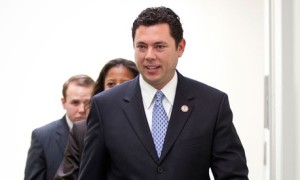First Nations University implemented federal income tax changes for payroll deductions
 First Nations University has reported that they will start implementing federal income tax changes for their employee payroll deductions. Those employees who work in Prince Albert and Saskatoon will be treated under new federal income tax changes in their next payroll. First Nations University official also told that all the employees from various campuses will go through provincial income tax deductions. New federal income tax will be validated for Regina campus of First Nations University to all other campuses.
First Nations University has reported that they will start implementing federal income tax changes for their employee payroll deductions. Those employees who work in Prince Albert and Saskatoon will be treated under new federal income tax changes in their next payroll. First Nations University official also told that all the employees from various campuses will go through provincial income tax deductions. New federal income tax will be validated for Regina campus of First Nations University to all other campuses.
New federal income tax changes will start working from January 1, 2013. Workers at Regina campus will continue to exempt from their federal income tax, reported the First Nations University officials. University put the exemption first time in 2003 and now officials have understood that it has been applied too widely. VP of finance, Mr. Juliano Tupone announced that changes will be implemented and they are not going to fight it. Federal income tax will be based on new income tax brackets for First Nations University employees and new updates will be followed by the University. He added that they are working with the relevant parties to assist their employees as much as possible.
Mr. Tupone said that university administration wants to follow all the tax rules. Later on, a broadcasting company tried to contact the federal government about these updates but they declined to discuss about the issue. Further updates are expected this week once federal government comments about the new tax changes.
Categories: Federal Tax, Income Tax, Tax Law Tags: corporate tax, federal income tax, federal tax, payroll tax, tax increase, tax law, tax reform, tax the rich
Woman in Cordele Indicted for Identity Theft
A woman from the city of Cordele was indicted this past Thursday by a federal grand jury for her crime of stealing people’s identities. From reports of the U.S. Attorney’s Office, Kimberly Michelle Banks was charged for using stolen identities and making false federal income tax returns.
Banks was charged with aggravated identity theft and wire fraud through a 6 count indictment. Federal prosecutors believed that she had used stolen identities to prepare false tax returns, and submitted them electronically to the IRS for refunds, knowing full well that they were fraudulent.
This particular case is being prosecuted by Trial Attorneys Alexander R. Effendi and Justin K. Gelfand. Both work under the Justice Department’s Tax Division. In addition, Michael Soli of the U.S. Attorney’s Office for the Middle District of Georgia will also be on the case. The investigation of this case was done in part with the help of the IRS, as they aggressively seek out tax cheats and identity thieves on a daily basis.
There are many cases of identity theft that have been happening, and they will continue to happen as long as individuals are careless in protecting their personal information. These criminals can use it to make fraud federal income tax returns and more. Even if you don’t think that you are being careless with your information, you should still take extra precaution with your personal information. There are many identity thefts that are caught, but there are some that slip by, and will walk away with thousands of dollars of your hard earned cash.
Categories: Tax Law Tags: identity theft, tax law
Bill in Consideration Will Allow Government to Fire Federal Tax Cheats
 There has been a legislation that was reintroduced this week by a House lawmaker that will allow the government to fire federal employees that do not pay their taxes.
There has been a legislation that was reintroduced this week by a House lawmaker that will allow the government to fire federal employees that do not pay their taxes.
This same legislation was passed by the house this past summer in a bipartisan vote; however, the legislation died in the Senate. Representative Jason Chaffetz brought life to the bill and guided it through the House during the 112th Congress.
The legislation presented would be applicable to executive and legislative branch workers, in addition to those working at the Postal Service who fail to pay taxes or haven’t settled on an agreement with the government to repay their debt. This same bill will also prevent the government from hiring people with severe tax debt. Severe tax debt is defined as an outstanding debt to the federal government where a public lien had needed to be filed. Currently, Internal Revenue Service employees are the only ones that will be fired for failing to keep up with their taxes.
Chaffetz mentioned on the debate room floor that the employees who are willing to make an effort to pay back the taxes will not get fired. Looking at a report from the IRS, there have been more than 98,000 federal employees that owed over $1 billion in unpaid federal income taxes in the year 2010. In addition, retired civilians had a tax debt of about $470 million, and over 83,000 military veterans had owed close to $1.6 billion in unpaid taxes in the year 2010.
Categories: Federal Tax, Income Tax, Tax Evasion, Tax Law Tags: federal income tax, federal tax, federal tax fraud, tax cheats, tax evasion, tax law


